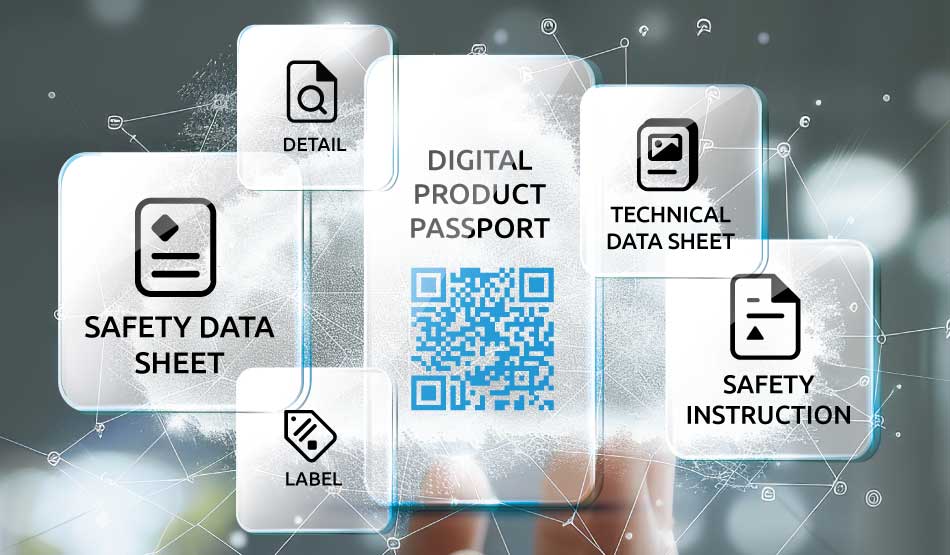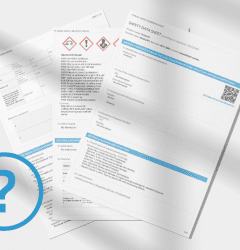03 Oct

In a world where sustainable development and the circular economy are increasingly becoming key objectives, it is essential for consumers, manufacturers, and legislators to collaborate closely to ensure the sustainability of products.
One of the latest steps in this direction is the introduction of the Digital Product Passport (DPP), which the EU plans to implement as part of Regulation No. 2024/1781. This will be a crucial component in the transition to a circular economy.
The DPP is designed to facilitate the transition to a circular economy by improving the material and energy efficiency of products, extending their lifespan, and ensuring optimal waste management.
Regulation No. 2024/1781
The introduction of the DPP is mandated by Regulation No. 2024/1781, which establishes the framework for setting eco-design requirements for sustainable products. This regulation covers a wide range of physical products available in the EU market, including raw materials and semi-finished products, with some exceptions such as food, feed, medicines, live plants, animals, vehicles, and more.
The purpose of this regulation is to reduce the environmental footprint of products throughout their entire lifecycle, from design to disposal.
Product groups for which DPP will be required on a priority basis: iron and steel > aluminum > textiles, especially clothing and footwear > furniture, including mattresses > tires > detergents > paints > lubricants > chemicals > energy-related products > ICT products and other electronics.
Approximate Timeline for DPP Implementation:
Detailed requirements for specific product groups will be introduced after 2027. By 2030, the legislative process will be completed, and the DPP will be fully operational.
The DPP will need to include precise information to enhance transparency and traceability of products. This includes:
- A link to a unique product identifier (DPP code)
- Physical presence of a data carrier on the product (e.g., QR code)
- Provision of free access to data for various users, including consumers, manufacturers, and customs authorities.
Regulation No. 2024/1781 also envisions the establishment of a DPP registry and a publicly accessible online portal for searching and comparing product data.
Definition of the DPP
The DPP is defined in Regulation No. 2024/1791 as follows:
“A ‘Digital Product Passport’ means a set of data specific to a product that includes the information specified in the applicable delegated act adopted pursuant to Article 4 and that is accessible via electronic means through a data carrier in accordance with Chapter III of the said Regulation.”
In simpler terms, the DPP is a data collection that contains up-to-date and detailed information about a specific product.
This information ranges from the origin of raw materials, material composition, energy efficiency, recyclability, to the sustainable attributes of the product.
The DPP will be electronically accessible through a data carrier such as a QR code, barcode, or other digital media, allowing easy access to data at various stages of the supply chain (from manufacturer to consumer).
Advantages and Challenges of the DPP
+ One of the main advantages of the DPP is the enhancement of product sustainability. By providing transparent and up-to-date information, the DPP will enable better handling of materials, reuse, repairs, and reduction of hazardous substances.
+ Additionally, the DPP will contribute to waste reduction and increased energy efficiency.
– Despite its many benefits, the introduction of the DPP also brings new challenges. The foremost challenge is balancing transparency of data with the protection of trade secrets. A robust system for collecting, storing, and managing large volumes of data will also need to be established. Moreover, effective methods for demonstrating compliance with DPP requirements will be necessary, demanding additional efforts and adaptations from manufacturers.
Since 2011, Chemius has been ahead of the competition with digital product dossiers. By scanning a QR code on the label, you can gain immediate access to comprehensive and up-to-date information about chemicals, including safety data sheets (SDS), technical data sheets (TDS), labels, and safe work instructions.
Future Outlook
The Digital Product Passport represents a significant step forward towards a more sustainable future. Its implementation will require cooperation from all parties involved, from manufacturers to consumers. Despite the challenges we will face together, the DPP offers an opportunity to improve sustainability and transition to a circular economy.
The Digital Product Passport will undoubtedly become an integral part of our daily lives. At our company, we are already intensively developing DPPs for chemicals. In addition to the well-known chemical documentation (safety and technical data sheets, labels, safe work instructions), Chemius will also enable the creation and updating of DPPs.



Spela Hudobivnik Kos